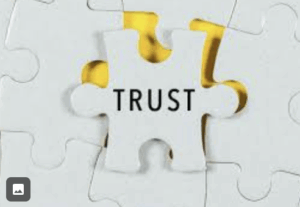Introduction: In the shadows of depression, the world can seem like an unending labyrinth, where every turn leads to deeper despair. Yet, amidst the darkness, there exists a beacon of hope: therapy. While depression may feel like an insurmountable obstacle, therapy offers a guiding light, illuminating the path toward healing and recovery.
Understanding Depression: Depression is more than just feeling sad or down; it’s a complex mental health disorder that can impact every aspect of a person’s life. From overwhelming feelings of hopelessness and despair to physical symptoms like fatigue and changes in appetite, depression casts a heavy shadow over one’s wellbeing.
Depression can stem from various factors, including genetic predispositions, chemical imbalances in the brain, traumatic life events, or ongoing stress. Regardless of its origins, the weight of depression can feel crushing, isolating individuals in a seemingly endless cycle of negative thoughts and emotions.
The Role of Therapy: In the face of depression, therapy serves as a powerful ally, offering support, guidance, and strategies for coping and healing. Through therapy, individuals can explore the underlying causes of their depression in a safe and non-judgmental space. Therapists work collaboratively with their clients to identify negative thought patterns, behavioral triggers, and coping mechanisms that perpetuate the cycle of depression.
Cognitive-behavioral therapy (CBT), for example, helps individuals recognize and challenge distorted thinking patterns, replacing them with healthier perspectives. Dialectical behavior therapy (DBT) equips individuals with skills to manage intense emotions and improve interpersonal relationships. Additionally, interpersonal therapy (IPT) focuses on resolving conflicts and improving communication within relationships, which can be particularly beneficial for individuals whose depression is influenced by interpersonal issues.
Breaking the Stigma: Despite its effectiveness, seeking therapy for depression is often stigmatized, leading many individuals to suffer in silence rather than reaching out for help. However, it’s crucial to recognize that therapy is not a sign of weakness but rather a courageous step toward reclaiming one’s wellbeing. Just as we seek medical treatment for physical ailments, therapy offers invaluable support for mental health struggles.
Therapy provides a space where individuals can express their thoughts and emotions freely, without fear of judgment. It offers validation and empathy, helping individuals feel seen and understood in their struggles. Moreover, therapy equips individuals with practical tools and techniques to navigate the challenges of depression, empowering them to regain a sense of control over their lives.
The Journey Toward Healing: Healing from depression is not a linear journey; it’s marked by ups and downs, setbacks and breakthroughs. Yet, with the guidance of therapy, individuals can gradually untangle themselves from the grips of depression and rediscover hope and resilience.
Therapy fosters self-awareness and self-compassion, enabling individuals to cultivate a deeper understanding of themselves and their needs. As they learn to challenge negative beliefs and develop healthier coping strategies, they gradually rebuild their sense of self-worth and purpose.
Conclusion: Depression may cast a long shadow, but therapy shines a light, guiding individuals toward the path of healing and recovery. By seeking therapy, individuals not only confront their struggles but also embrace the possibility of transformation and growth. In therapy, they discover that amidst the darkness, there is always a glimmer of hope waiting to be found. So, if you or someone you know is grappling with depression, remember that therapy offers a beacon of light in the darkest of times.







